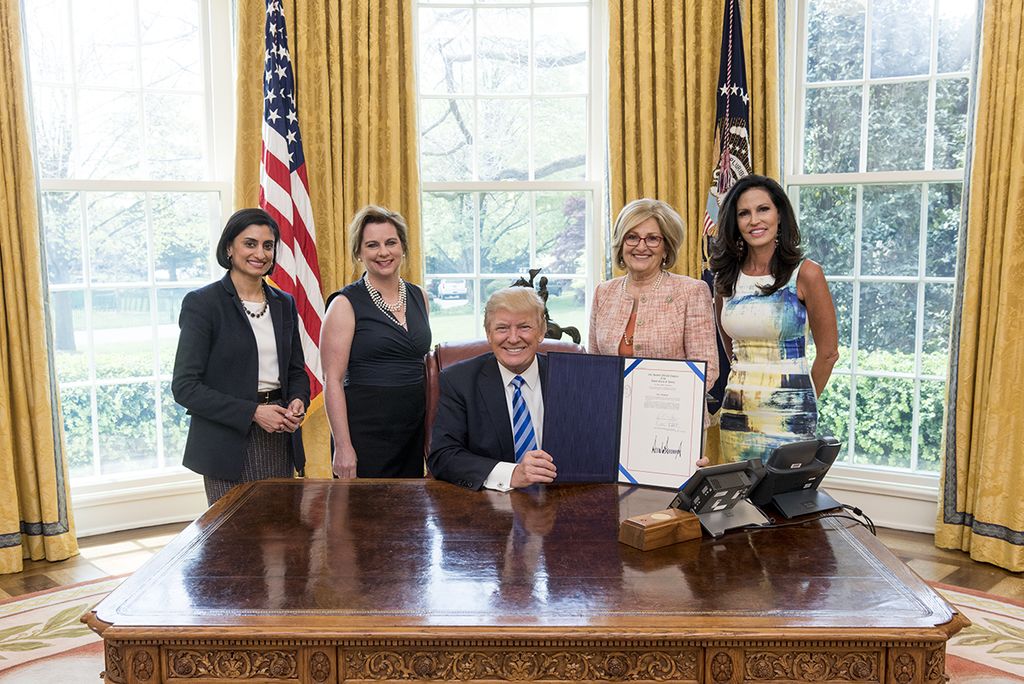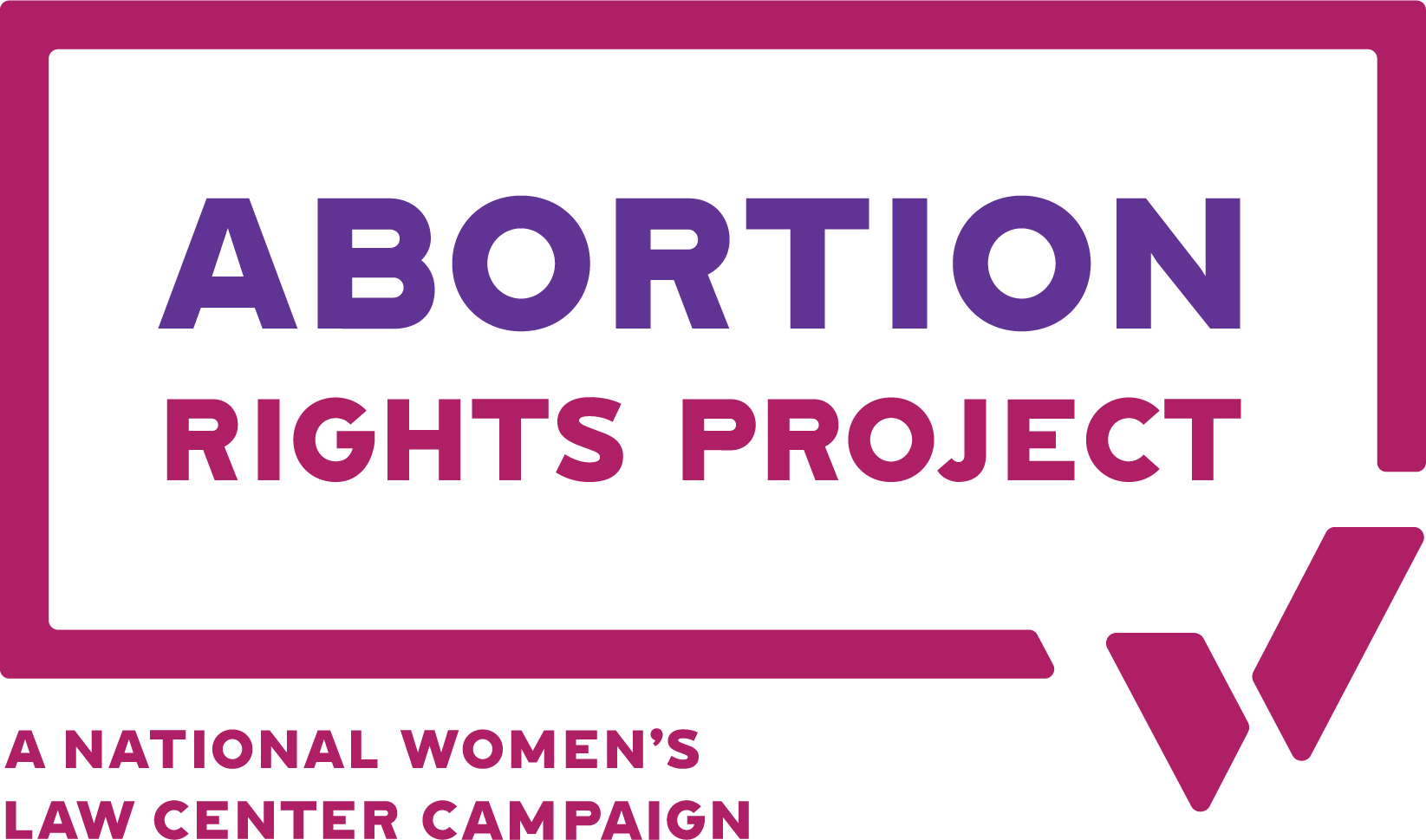Abortion rights, women of color, and LGBTQI+ people are under attack. Pledge to join us in fighting for gender justice.
The Hard Bigotry of Health Care Inequities

 Yesterday, CMS Administrator Seema Verma addressed the National Association of Medicaid Directors (NAMD) with a speech that was rife with offensive rhetoric about the Medicaid program and individuals enrolled in it. In her remarks, Ms. Verma invoked the idea of a dual health care system—one in which the “deserving” or those “truly in need” are worthy of receiving care supported by federal and state governments, while “working-age” and “able-bodied” adults who wait for “Medicaid cards” and “depend” on government programs are unworthy of such coverage. She expressed strong support for state imposition of work requirements, which she calls “community work,” as a condition for receipt of Medicaid coverage. Ms. Verma noted that, through “community work,” individuals would gain “dignity” and “respect.” And, instead of a “hand up,” individuals would be provided the “opportunity to take charge of your health care,” and be “assisted” and “empowered” to “rise out of poverty” and escape “government dependence to create better lives for yourselves and your family.” She noted: “Believing that community engagement requirements do not support or promote the objectives of Medicaid is a tragic example of the soft bigotry of low expectations consistently espoused by the prior administration.” This language and the message it is sending is dog-whistle racist rhetoric that has been long-invoked by opponents of the idea of access to health care as a civil and human right.
Yesterday, CMS Administrator Seema Verma addressed the National Association of Medicaid Directors (NAMD) with a speech that was rife with offensive rhetoric about the Medicaid program and individuals enrolled in it. In her remarks, Ms. Verma invoked the idea of a dual health care system—one in which the “deserving” or those “truly in need” are worthy of receiving care supported by federal and state governments, while “working-age” and “able-bodied” adults who wait for “Medicaid cards” and “depend” on government programs are unworthy of such coverage. She expressed strong support for state imposition of work requirements, which she calls “community work,” as a condition for receipt of Medicaid coverage. Ms. Verma noted that, through “community work,” individuals would gain “dignity” and “respect.” And, instead of a “hand up,” individuals would be provided the “opportunity to take charge of your health care,” and be “assisted” and “empowered” to “rise out of poverty” and escape “government dependence to create better lives for yourselves and your family.” She noted: “Believing that community engagement requirements do not support or promote the objectives of Medicaid is a tragic example of the soft bigotry of low expectations consistently espoused by the prior administration.” This language and the message it is sending is dog-whistle racist rhetoric that has been long-invoked by opponents of the idea of access to health care as a civil and human right.
Ms. Verma and others who propagate a racialized “up-from-your-bootstraps” narrative fail to acknowledge the reality that our nation has been shaped by long-standing social, economic, and racial inequalities that have shaped many individuals’ experiences of poverty, low educational attainment, and economic injustice. But, those disproportionately impacted by these inequities, including people of color and women, are not singularly responsible for eradicating them. What President Johnson recognized with the passage of Medicare and Medicaid and, later, President Obama recognized with the passage of the Affordable Care Act (ACA), was the important role that the federal government could play in helping to eliminate these inequalities.There is nothing new about the narrative Ms. Verma invoked in her speech—it’s a narrative that has persisted since slavery—and, in the modern era, has been used to justify reforms to federal programs, including 1990s welfare reform efforts. Ms. Verma’s remarks are consistent with the language invoked during welfare reform debate—stoking resentment towards recipients of federal entitlement programs and promoting “self-sufficiency,” “self-esteem,” and pride in work for those implied to be otherwise lazy, shiftless, and dependent upon the government for a handout. We must expose this dangerous narrative and the lies and racism upon which it is predicated.
We did this during debates in Congress to dismantle Medicaid and repeal the ACA, including by joining with 115 of our allies, including the Black Women’s Health Imperative, In Our Own Voice, SEIU, the American Psychological Association, the NAACP, and others to send a letter to senators exposing the harm of relying upon racial stereotypes in instituting harmful changes, like work requirements, that would destroy the Medicaid program.
We must refuse to normalize this false narrative and its racially-coded language. Instead, we must expose how this narrative invalidates the lived experiences of those in Medicaid and perpetuates inequality within our health system. For instance, the majority of those enrolled in Medicaid who can work do work, including many women who work in the health sector in jobs supported by the Medicaid program. We must support policies and legislation that address wage inequalities, limited educational opportunities, and other systemic barriers that undermine access to employer-sponsored health coverage and impair many individuals’ ability to afford health insurance coverage on the individual market.
Ms. Verma has it wrong when she concludes that work requirements are “in the spirit of Johnson’s idea.” “Community engagement requirements” as Ms. Verma calls them—controvert the character of the Medicaid program. They abdicate the federal role in addressing systemic and structural inequality and rob Medicaid enrollees—including many who have only recently obtained coverage thanks to the ACA—the dignity of having health insurance coverage that promotes economic security and well-being and that enables them to pursue educational and employment goals.





